Liberal cabinet touts Team Canada approach after Trump’s 25 per cent tariff threat
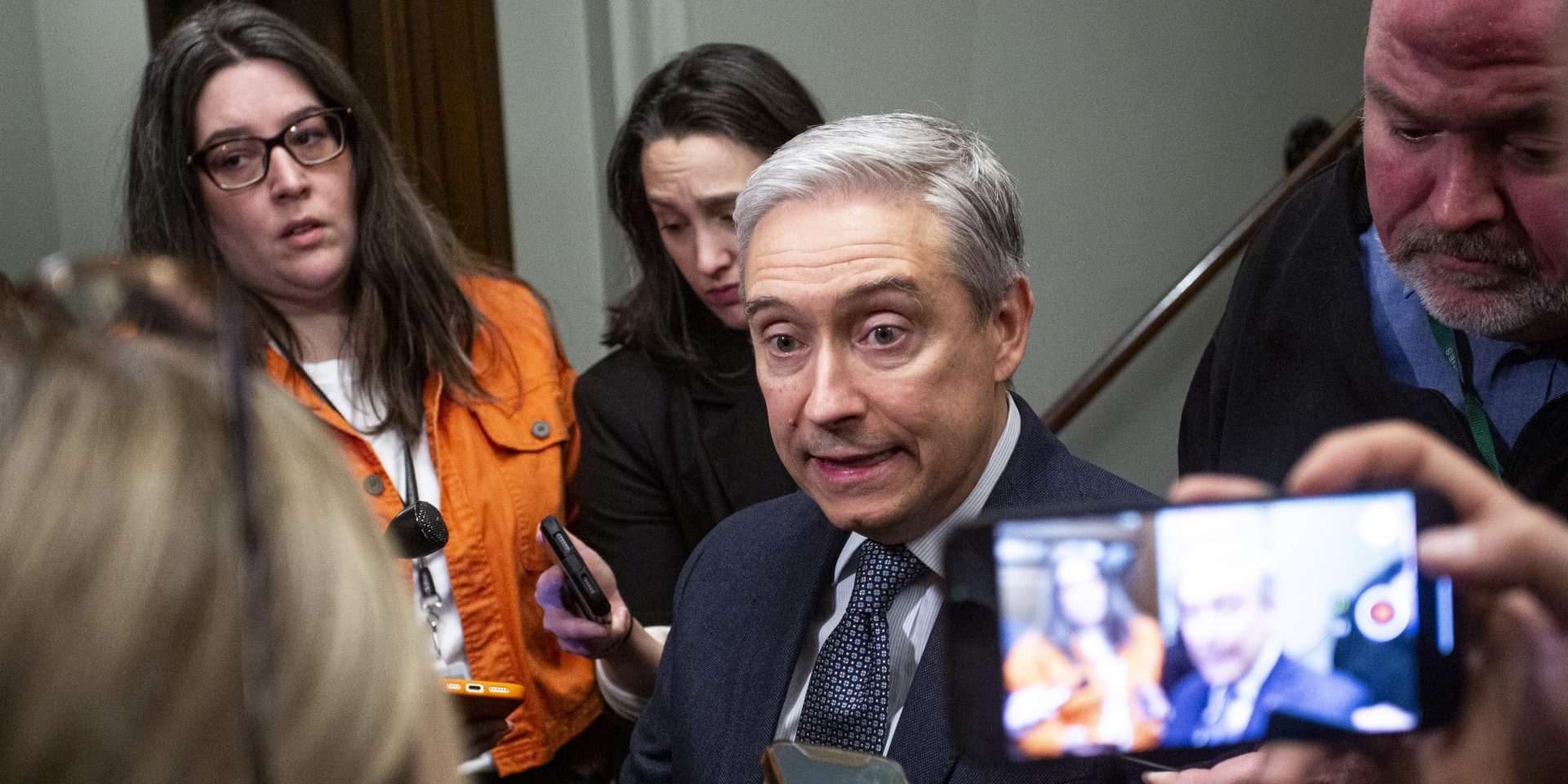
Prime Minister Justin Trudeau’s cabinet ministers say they will use the coming weeks to convince Donald Trump about the importance of uninterrupted trade relations, after the incoming American president threatened to impose a 25 per cent tariff on all products from Canada on his inauguration day.
In interviews before their Tuesday cabinet meeting, Trudeau’s ministers stressed there are a “number of weeks to engage” with the incoming administration before the Jan. 20, 2025, inauguration date when the president-elect has threatened to make the executive order upon taking office.
Trudeau (Papineau, Que.) spoke with Trump on Monday evening, telling reporters it was a “good call” where they discussed “the intense and effective connections” between the two countries.
The prime minister said his government is “putting aside partisanship” and immediately reached out to Ontario Premier Doug Ford, Quebec Premier François Legault, and others to agree to an emergency meeting on Wednesday. Ford, who chairs the Council of the Federation, had written to Trudeau on Nov. 25 requesting an urgent meeting between the premiers and Trudeau.
“This is a relationship that we know takes a certain amount of working on, and that’s what we’ll do,” Trudeau said. “The Team Canada approach is what works.”
Canada and the U.S. trade an estimated $3.6-billion of goods and services every day, and are each other’s largest trade partners.
Writing on his social media platform Truth Social on Nov. 25, Trump threatened the tariff would “remain in effect” until Mexico and Canada address the border issues, including the flow of drugs, “in particular fentanyl,” and migrants, who he called “illegal aliens.”
Trump’s first term, from 2017-21, was also characterized by trade uncertainty and threats of tariffs, after he had campaigned in 2016 on renegotiating the North American Free Trade Agreement (NAFTA), calling it “the worst trade deal in history.”
As negotiations unfolded, in May 2018, the United States imposed tariffs of 25 per cent on imports of Canadian steel and 10 per cent on aluminum, citing a lack of progress on the NAFTA renegotiations. Canada retaliated by imposing tariffs of its own on steel and aluminum from the United States.
Trump also threatened a 25 per cent auto tariff during negotiations, but those never came to pass.
In August 2018, the United States and Mexico announced they had reached a bilateral agreement—with Canada shut out—but a last-minute deal brought Canada into the fold of the Canada-United States-Mexico (CUSMA) agreement announced on Oct. 1, 2018.
After some additional modifications, and the ratification process in each country, it came into effect in July 2020, and was viewed as broadly similar to the old deal despite its new name.
Trump’s Nov. 5 election victory signalled a likely return to trade shocks, after he campaigned on wanting to renegotiate his own agreement, saying he could get “a much better deal.”
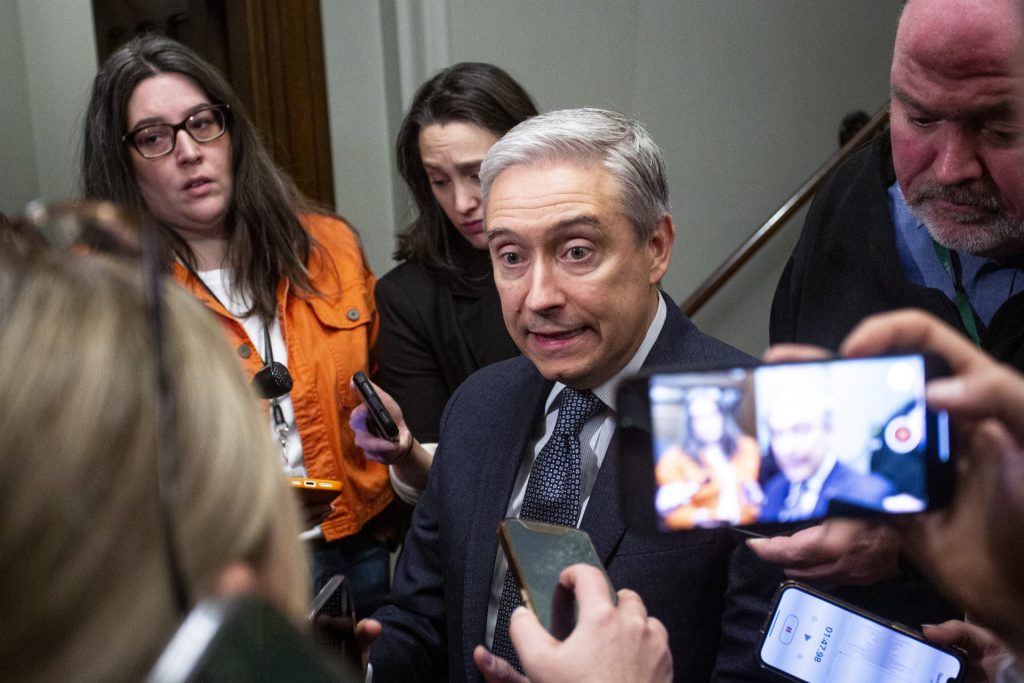
‘We’ll stand up for Canada’: Champagne
In media scrums before the Tuesday cabinet meeting, Trudeau’s ministers expressed agreement that the threat calls for an immediate response.
Innovation Minister François-Philippe Champagne (Saint-Maurice—Champlain. Que.) said “there’s no doubt” Canada has to take the threat seriously, but the country is ready.
“I would say the preparation that we’ve done is going to be material in our discussions,” he said.
With several months before Trump takes office on Jan. 20, 2025, Champagne stressed the government still has “a number of weeks to engage.”
He said Canada would use this time to make sure the Trump administration understands “everything that we have said about the strategic nature of our relationship” including “security, supply chain resiliency, and making sure that they understand [these tariffs] would have an impact on the U.S. economy,” Champagne said.
“Bottom line, we’ll do like we always do: we’ll stand up for Canada, we’ll stand up for the workers, we’ll stand up for industry.”
Champagne highlighted Canada’s ties to the American economy on energy, in particular, as did Natural Resources Minister Jonathan Wilkinson (North Vancouver, B.C.).
Wilkinson stressed the market between the two economies benefits both sides.
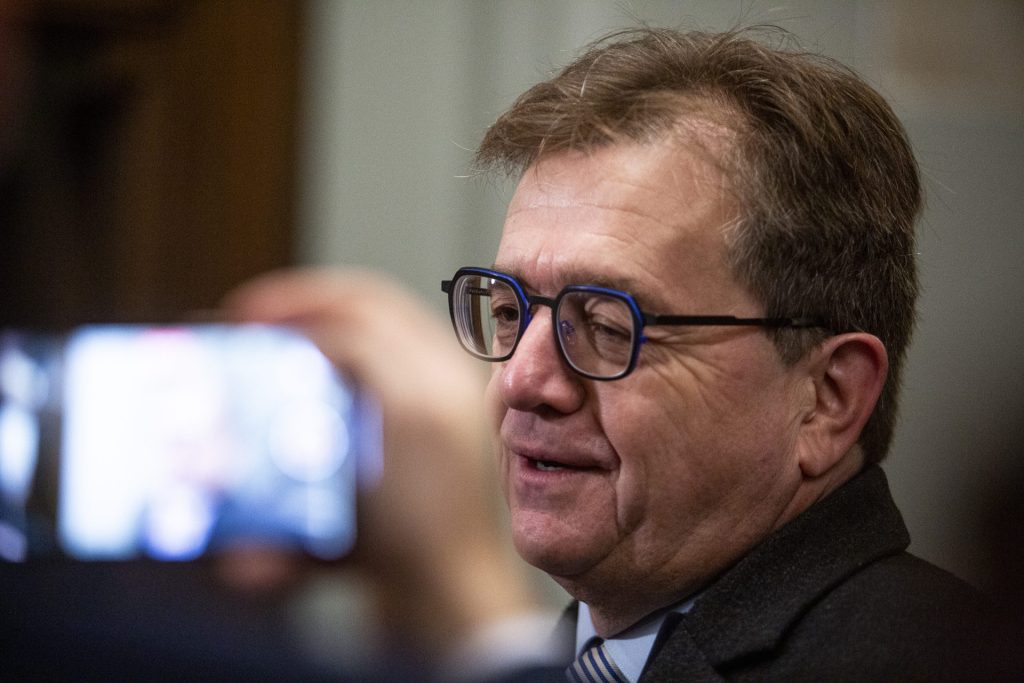
“Canada and the United States have had an integrated energy market for a long time,” he said. “That’s not just oil and gas, that’s hydroelectricity that feeds New York and Boston. It’s the potash that feeds people across the United States. It’s uranium that powers nuclear facilities.”
Wilkinson said Trump’s nominees in this area “have significant experience with Canada, and that’s a good thing.” Last week, the president-elect tapped oil and gas industry executive Chris Wright to lead the U.S. Department of Energy.
Deputy Prime Minister Chrystia Freeland (University-Rosedale, Ont.) and Public Safety Minister Dominic LeBlanc (Beauséjour, N.B.), who together chair the Canada-U.S. Relations Cabinet Committee, issued an evening statement following the news.
Calling the bilateral relationship “balanced and mutually beneficial,” the pair said Canada is “essential” to American energy supply, pointing out that 60 per cent of U.S. crude oil imports came from Canada last year.
“Canada places the highest priority on border security and the integrity of our shared border,” the statement said, adding law enforcement agencies already “work together every single day to disrupt the scourge of the fentanyl coming from China and other countries.”
The pair also noted that Canada is “essential” to U.S. energy supply, saying that last year 60 per cent of crude oil imports came from Canada, and touting work already underway to “disrupt the scourge of the fentanyl coming from China and other countries.”
Immigration Minister Marc Miller (Ville-Marie-Le Sud-Ouest-Île-des-Soeurs, Que.) said that Canada has “a duty with our market counterparts to make sure that the border stays safe and secure.”
Asked if he was considering new measures such as deploying more officers to the New York-Vermont border or making changes to the safe-third country agreement, Miller said that “clearly” this will be “part of a discussion that we’ll have with the Americans when we have an opportunity to sit down.”
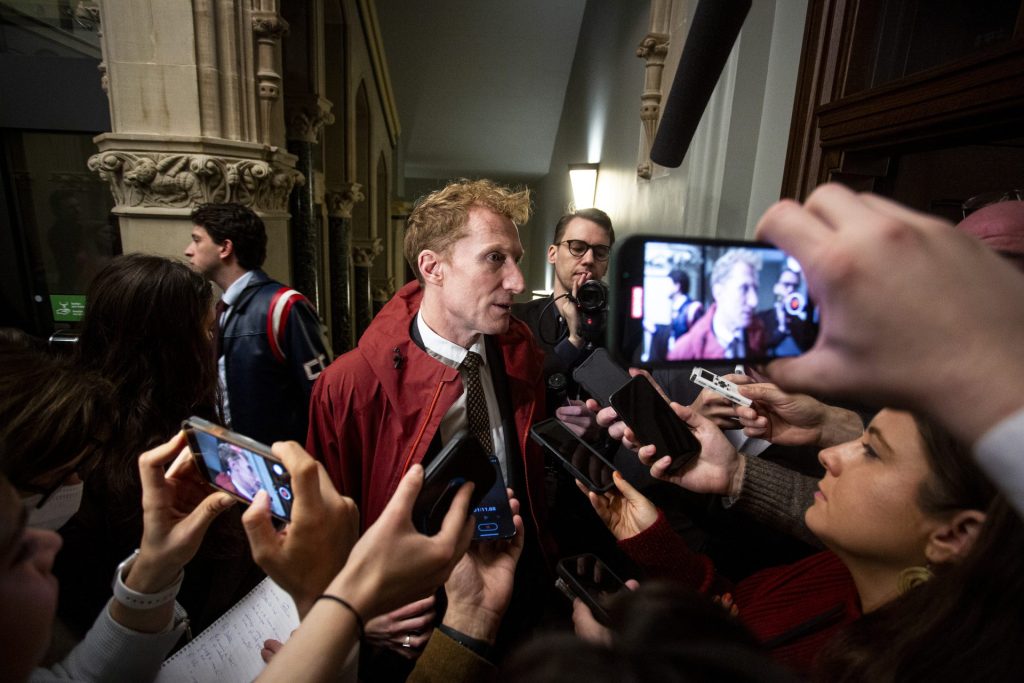
Miller said the government takes the incoming administration’s comments “very seriously,” adding Canada, too, has concerns about “the flow of people coming from the south to the north.”
“We have shared interests and we are making it something that is manageable and controlled, and those that are not authorized to cross the border are promptly returned,” he said.
Housing Minister Sean Fraser (Central Nova, N.S.) said it’s an “extremely important time” for the government to do outreach with contacts in the United States to find solutions.
“We’ve had challenges before, we’ll have challenges again, but they are a longstanding ally and we’re going to do what we can to work through [these] kinds of challenges to ensure we protect the interests of Canadians.”
Fraser said the messaging will be focused on demonstrating “the importance of a continued bilateral trade relationship.”
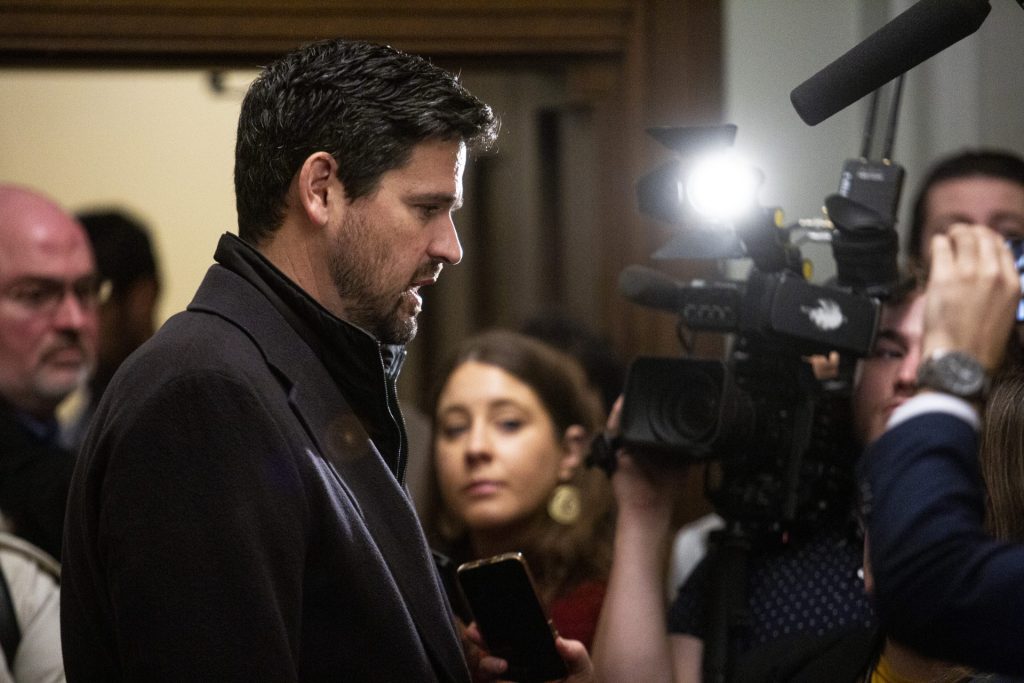
“We’ve got a heavily integrated supply chain with a lot of north-south trade that goes on with literally dozens of U.S. states where Canada’s their top trading partner,” he said.
‘Fight like hell,’ says Singh
Conservative Leader Pierre Polievre (Carleton, Ont.) attacked the prime minister’s leadership on border issues and the economy, accusing Trudeau and his deputy prime minister of being caught by surprise.
“We must be honest with our unprecedented weakness,” said Poilievre, who touted his plan to address the economy and security issues.
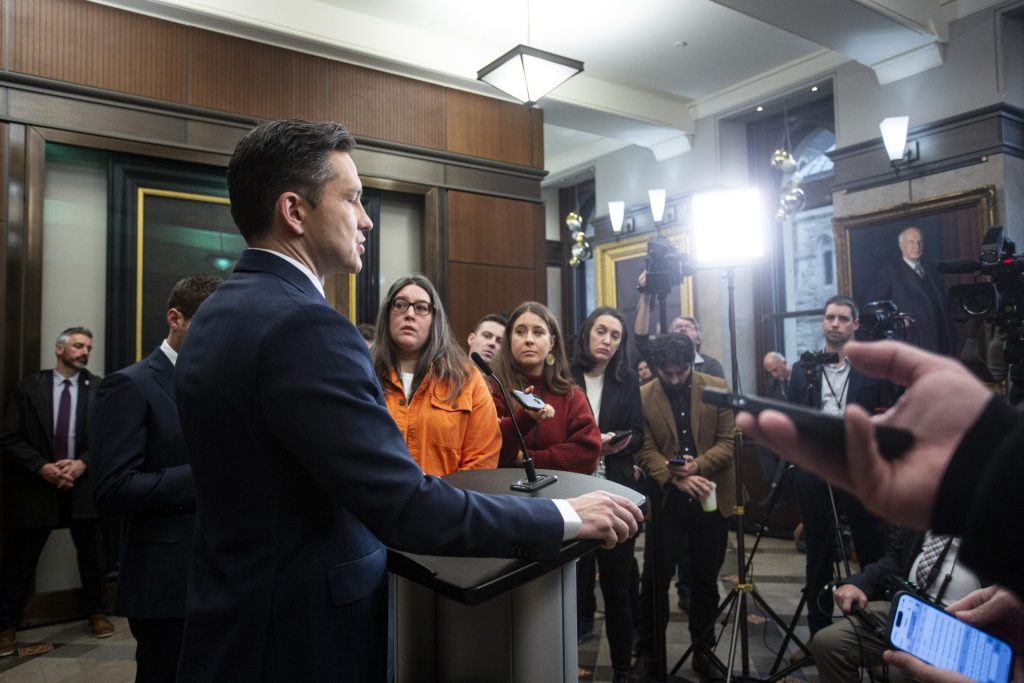
Poilievre urged Trudeau to end Canada’s carbon tax “in the spirit of Team Canada,” invoking the phrase the government has used to describe its response to the protectionist policies tied to Trump’s first presidency, and is deploying again.
“This was an irresponsible policy to begin with, but combining this kind of crippling energy tax increase to potential tariffs from Donald Trump would push our economy into a nightmare tailspin. So let’s put aside partisanship and axe the tax,” said Poilievre, who also pressed the government to cancel “all tax increases” and the proposed oil and gas emissions cap.
Asked if he would put aside partisanship, Poilievre said “I’m making non-partisan suggestions today.”
NDP Leader Jagmeet Singh (Burnaby South, B.C.) called on Trudeau to “stand up and fight like hell.”
“Justin Trudeau, you cannot keep your head in the sand,” posted Singh on X. “Canadian jobs are on the line.”
Bloc Québécois Leader Yves-François Blanchet (Beloeil—Chambly, Qué.) offered a more optimistic view.
“There will be no 25 per cent tariffs I believe,” he posted on X.
Blanchet wrote that he expects the tariffs will not occur because the authority of the Senate would have to be circumvented by temporary decree, and the impact on the U.S. economy “would be devastating.”
“Everyone knows it, including the president-elect’s entourage,” wrote Blanchet.
Premiers weigh in
Ontario Premier Doug Ford called on the prime minister to hold an “urgent meeting” with all of Canada’s premiers—a request Trudeau has agreed to.
In a post on X, Ford said the tariffs would be “devastating to workers and jobs in both Canada and the U.S.”
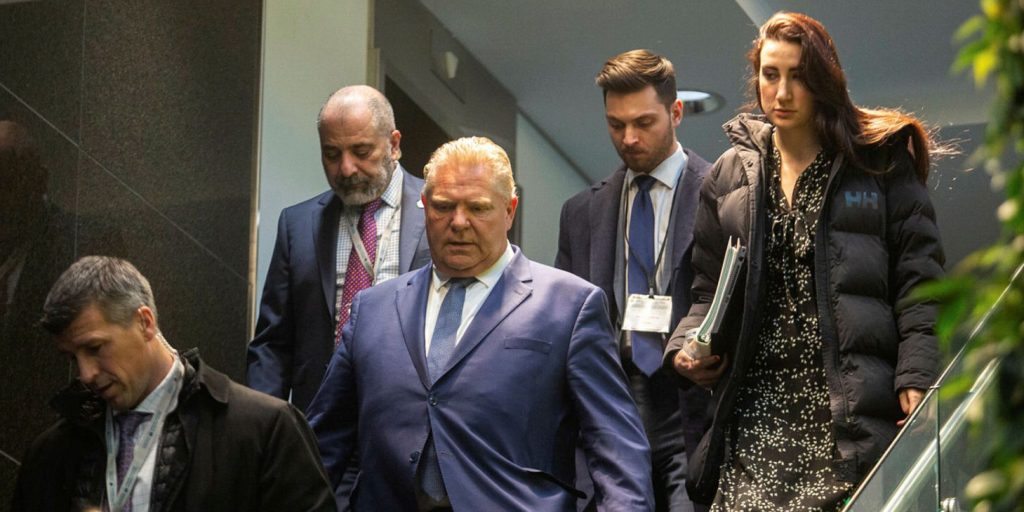
“The federal government needs to take the situation at our border seriously,” posted Ford. “We need a Team Canada approach and response—and we need it now.”
Quebec Premier François Legault said in a post on X that he offered his provinces “full co-operation” to the prime minister.
The situation poses “an enormous risk to the Quebec and Canadian economies,” wrote Legault. “We must do everything we can to avoid tariffs of 25 per cent on all products we export to the United States.
To address the situation, he said “border integrity must be the priority of the federal government.”
Alberta Premier Danielle Smith said the incoming Trump administration has “valid concerns related to illegal activities at our shared border” and called on Ottawa to “work with the incoming administration to resolve these issues immediately, thereby avoiding any unnecessary tariffs on Canadian exports to the U.S.”
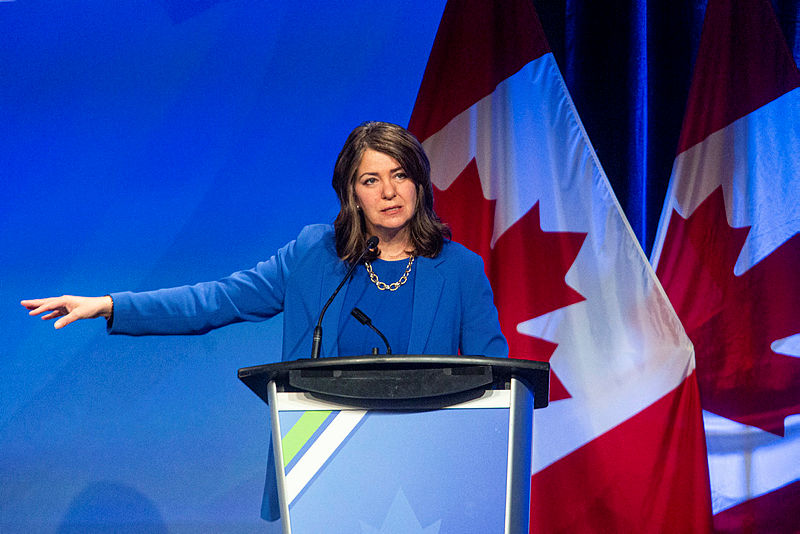
“Fortunately, the vast majority of Alberta’s energy exports to the U.S. are delivered through secure and safe pipelines which do not in any way contribute to these illegal activities at the border,” wrote Smith. “As the largest exporter of oil and gas to the U.S., we look forward to working with the new administration to strengthen energy security for both the U.S. and Canada.”
The Hill Times





 LICENSING
LICENSING PODCAST
PODCAST ALERTS
ALERTS













